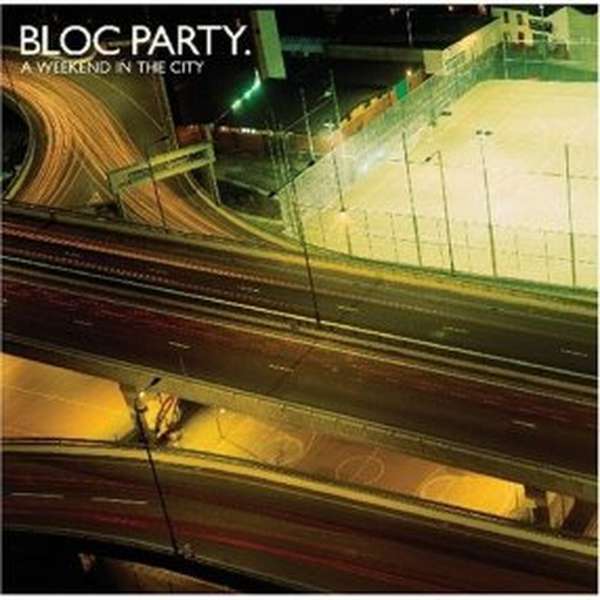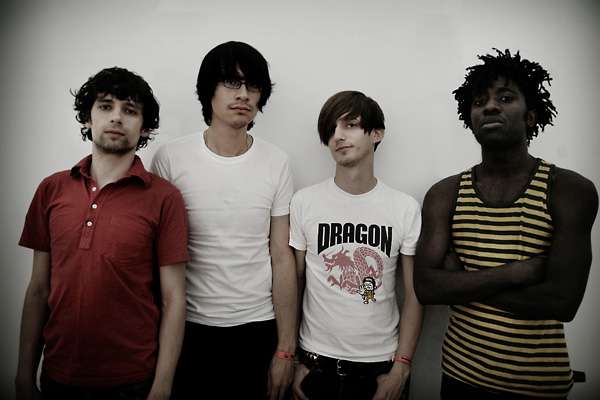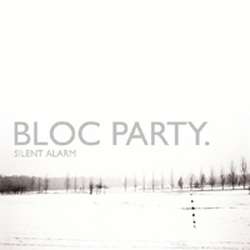Being a favorite of my friends and I during our Friday/Saturday night pre-pub dance parties, I had a certain set of expectations for what the new Bloc Party would sound like. While 2005's Silent Alarm carried a handful of mellower tracks, making up the bulk of the filler on the album, it was pushed to popularity by its killer single "Banquet" and some similarly catchy up tempo tracks; managing to resonate with the hipster snobs and OC crowd alike. Though the originality of the group was questionable, as taking a look at Sub Pop or any other indie rock label would pull up a handful of contemporaries, it was evident that Bloc Party had a good formula worked out: effects happy guitar hooks and pop sensibility charmingly British. Suffice to say, myself, like many others, were looking forward to more of the same. This is where the boy's newest disc, A Weekend in the City, fails to deliver.
The CD's opener, "Song for Clay Disappear," begins with a quiet vocal melody accompanied by single chords before breaking into the discs best riff. This kind of familiarity was enough to remind me why I listened to the band in the first place, but unfortunately, in what becomes a theme for the album, vocalist Kele Okereke then begins to insistently repeat gibberish over and over again as an excuse for lyrics. Given, this is hardly a departure from Bloc Party's last effort, but can even be excused on the first few tracks. For instance, "Song for Clay Disappear" teaches us that "East London is a Vampire/ It sucks the joy," though I'm still trying to figure out what that has to do with the chorus' message, "People are afraid to merge on the freeway"ââ¬Â¦ But as Weekend in the City's energy tones down, the lines become harder to accept. From what I gathered in the words I could make out, the album's central themes focus around love and death in London, with an uncanny number of references to the undead. While the concept of sucking blood is questionably cool at best, its juxtaposition with romanticized pop songs seems out of place.
After the first two songs the band makes a repeated effort at creating an epic tune. And while listening to the album as a whole for the second and third times, I had to keep from skipping them entirely. While none of the songs in themselves seem bad, they fail to differentiate from one another, and didn't fit as much more than background music, leaving eight out of tens songs as filler. The most surprising part of Weekend in the City, however, is found in the last track "SXRT," which is more akin to Jimmy Eat World's "23" then any of the Britpop Bloc Party is regularly grouped in with.
Though there is no doubt that Bloc Party has retained their signature sound on this album, the direction taken with a slower pace and additional use of synths does not play into their strengths.


